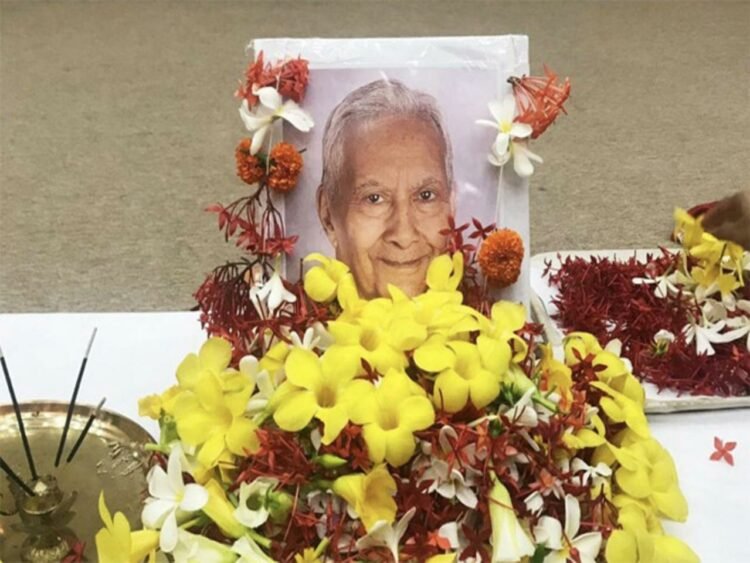New Delhi: Businessman Basant Kumar Birla, chairman of the B.K. Birla Group, died on 3 Jul in Mumbai. He was 98. Fondly known as B.K. Birla or Basant babu in business circles, was born on 12 Jan 1921. At a very young age, the youngest of three sons of industrialist and philanthropist Ghanshyam Das (G.D.) Birla was exposed to managing risks at a tender age without studies being disturbed.
A student of merit, B.K. enrolled himself in the science stream of Calcutta’s prestigious Presidency College to graduate in science. However, G.D. Birla has some other plans for Basant babu. He was inducted into the family business, specifically in Kesoram Cotton Mills Ltd, which abandoned the dream of B.K. to become a graduate. This made this young man become one of the country’s leading industrialists with several path-breaking initiatives to his credit in a moral dilemma.
B.K. Birla, along with his wife Sarala Biyani, daughter of first finance minister of Madhya Pradesh, represented independent India’s diverse values such as sacrificing traditional values and fulfilling their economic responsibility towards shareholders without surrendering the sense of public duty.
G.D. Birla’s close association with the Indian independence movement and its leaders also allowed B.K. Birla to observe and develop his business philosophy, which was deeply imbued with Gandhi’s socio-economic concept of trusteeship.
B.K Birla, an astute businessman was also inspired to expand the family business from cotton textiles to other areas. As a responsible custodian of wealth, he soon expanded the Birla group’s footprint through flagship companies Kesoram Industries and Century Textiles into rayon, engineering, cement, medium-density fibreboards, pulp and paper, shipping, tyres, tea, and chemicals, among others. The group’s turnover in FY19 stood at ₹16,500 crore.
He also led to the growth of the group overseas. Over time, the group’s leading companies were Kesoram Industries, Century Textiles and Industries, Century Enka, Mangalam Cement, and ECE Industries.
B.K. Birla was not just into business but also loved photography and art. This art lover gave Kolkata its best art centre, Birla Academy, with an enviable collection of paintings and sculptures. The auditorium Kalamandir, which hosts the city’s best cultural shows, is another prized gift from B.K.
A firm believer that India’s progress would depend upon a well-educated citizenry, B.K. had all the time to build educational institutions from schools, colleges to engineering and management institutes all over the country. Over the years, he held many positions in many companies, including his own group companies, but his favourites probably were his associations with the group’s charitable ventures.
He was the chairman of the Krishnarpan Charity Trust, which runs the B.K. Birla Institute of Engineering and Technology in Pilani, Rajasthan, the Swargashram Trust, which administers a Sanskrit school in Rishikesh. He also established Birla Public School in Qatar and the B.K. Birla College of Arts, Science and Commerce in Kalyan near Mumbai.
Author of several books, B.K. Birla has also written an autobiography titled Svantah Sukhaya, where he recounts his early childhood experience of growing up in pre-independence India, and, especially, his time with Gandhi.
He even continued his father’s practice of maintaining cordial ties with other business families. B.K. Birla’s sense of stoicism was perhaps strengthened and reinforced through his son’s demise in 1995 and wife Sarala’s passing away in 2015.
After his son’s untimely death, he helped his grandson, Kumar Mangalam, take over the Aditya Vikram Birla Group’s leadership mantle. B.K. Birla’s life arc touched a broad swathe of people, institutions and activities. His legacy will live on through his numerous charitable and educational institutions.
His funeral will be held in Kolkata on Thursday.






















